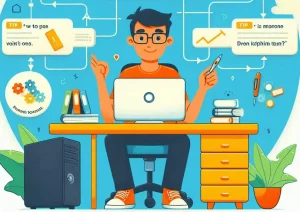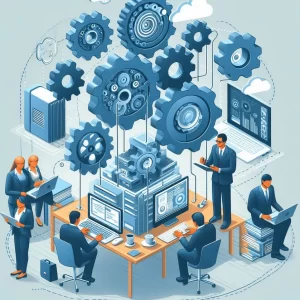5 Reasons a Greener Lifestyle is the Way Forward for South Korea
Plastic waste has become a serious topic in countries across the globe. The issue is addressed by the UN Environment Programme (UNEP) by emphasizing the urgency of reducing plastic waste to maintain a healthier environment, marine life, and societies.
More than 430 million tons of plastic are produced each year, and around 66% of them become thrash after a single use. The amount will triple by 2060 if the habit continues. A shift to a greener lifestyle is imminent, and APP Group is committed to support this global effort.
In 2016, South Korean people’s average use of plastic for each person reached 98.2 kg yearly. By 2019, a Statista report showed South Koreans used a staggering 23.5 billion single-use plastic items, including 23.5 billion plastic bags (460 per capita), 4.9 billion PET bottles (96 per capita), and 3.3 billion plastic cups (65 per capita). On average, the usage of single-use plastic is 11.5 kg per person per year.
The South Korean Ministry of Environment had implemented a single-use plastic ban at convenience stores, cafes, or small businesses in 2022. Yet the policy was withdrawn just one year after the implementation. The reason behind it was because the government receives complaints from small business owners who claimed they can’t survive without single-use plastic.
Here are five reasons why single-use plastics should be left out for Korea’s sustainable future.
- A Serious Threat for Marine Life
Plastic waste is a serious threat to life below water. It penetrates the habitat of marine life and is often mistakenly consumed by sea animals. There are reports and cases of animals having serious problems due to plastics found in their digestive systems. Some endangered species are also reported to suffer from consuming plastic waste.
- It Can Cause Health Issues for Human
The threat under the water can also bring side effects to what’s on land. In this case, humans might unintentionally consume microplastics in seafood they eat. It is concerning that it contains some chemicals, such as styrene and phthalates, which are causing several health issues for humans, including cancer, hormone disruption, and cardiovascular diseases.
- Energy and Emission Concern
Aside from its difficulty to decompose, plastic production also brings significant impact. The manufacturer will release gas and fumes as air pollutants. UNEP estimates plastics will contribute to 19% of the global carbon budget if current production and disposal rates continue. The high carbon footprint of plastics can be reduced by switching to more environmentally friendly packaging.
- Future Benefits
Replacing plastic with greener alternatives can potentially gain economic benefits. With the high rate of plastic tax and its cost of production, the stakeholders could save up to 4,5 trillion, according to UNEP, in environmental and social costs over the next 17 years. Moreover, with the new culture of recycling and reusing, hundreds of thousands of new opportunities will open. It will create an ecosystem of recycling, waste management, and the development of sustainable materials, which can be beneficial for workers globally.
- Act Now, Act Together to Keep the Momentum Going
Breaking free from single-use plastic has garnered worldwide support. Two years ago, the UN led nations to participate in signing a global treaty to end plastic pollution. It then became a historic decision for all 193 UN member states.
As alternatives to plastics, APP Group introduced more eco-friendly solutions in food packaging at Seoul Food & Hotel 2023. Foopak were introduced to reduce single-use plastics. By using paper-based packaging, it is easier to decompose or recycle the materials than plastics. Eventually, the solution is hoped for changing the habit to a more sustainable lifestyle.
APP Group believes in responsible business practices to supply chains—cooperation with local communities in harmony while protecting forests, peatlands, and biodiversity. The vision goes in line with Sustainability Roadmap Vision 2030, UN SDG, as well as the Paris Agreement on climate change.
APP Group’s strategy for developing environmentally friendly products is based on three fundamental principles: reducing energy intensity, protecting forests, and empowering communities. These principles guide the APP Group’s efforts to invest in clean technologies, reuse by-products, and implement more rigorous preventive maintenance protocols. APP Group’s sustainability initiatives align with a broader global trend in which businesses are a pivotal force in driving sustainable transformation.
Changing habits is not easy, but it is possible. And to win this constant battle, each one of us can participate by doing our part. Learning new and sustainable habits will make small changes that can be effective when it’s done by others too.
Sources:
https://www.statista.com/statistics/1100537/south-korea-number-of-single-use-plastic-consumed
https://www.koreaherald.com/view.php?ud=20240515050101
https://www.korea.net/NewsFocus/Society/view?articleId=223598
https://dialogue.earth/en/pollution/14200-how-does-plastic-pollution-affect-the-ocean/#:~:text=Research%20also%20shows%20that%20more,the%20planet%20have%20consumed%20plastic.






